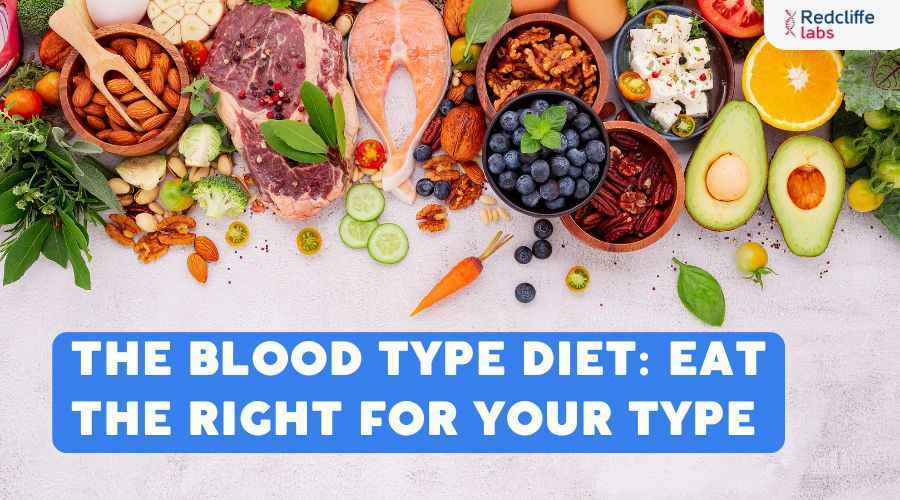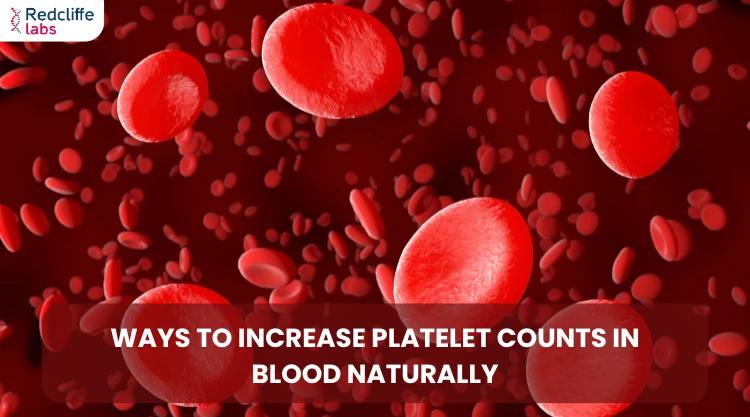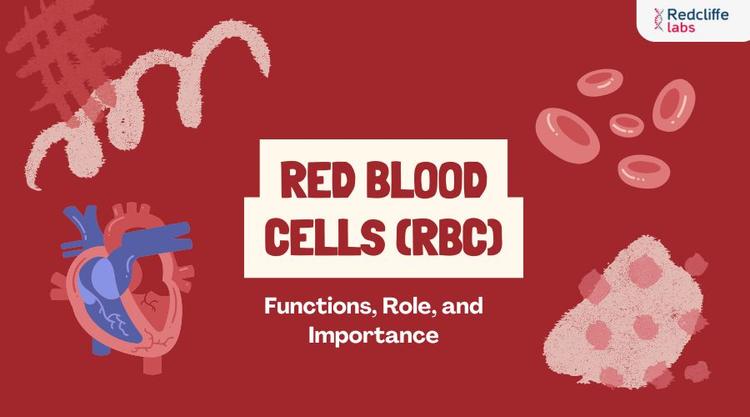The Blood Type Diet: Eat the Right for Your Type

Medically Reviewed By
Prof. Ashok Rattan
Written By Sheena Mehta
on Feb 6, 2025
Last Edit Made By Sheena Mehta
on Jul 19, 2025

- Have you ever pondered which diet can complement your blood type?
- But, first of all, do you know what your blood type is?
- Is your blood type (A, B, AB, or O)?
The blood type diet influences how your body. Even the experts believe eating foods compatible with your blood type can enhance health, promote weight loss, and reduce the risk of chronic diseases. Let’s discover this much-hyped topic in detail.
Did you know?
“Eat right for your blood type” is the brainchild of Dr. Peter D’Adamo. According to him, the blood type you inherit from your parents forms the foundation of foods your body can easily digest and process more efficiently.
Understanding of the four main blood types
The four main blood types, A, B, AB, and O, are determined by the presence and absence of specific antigens. These antigens are found on the surface of the red blood cells and contribute to blood transfusions and organ transplants.
Overview of Blood type A, B, AB, and O
|
Antigens Present |
Antigens Absent |
Can donate to |
Can Receive from | |
|
Blood Type A |
An A antigen on Red Blood cells |
Anti-B antibodies in Plasma |
A, AB |
A, O |
|
Blood Type B |
B antigen on red blood cells |
Anti-A antibodies in Plasma |
B, AB |
B, O |
|
Blood Type AB (universal recipient) |
Both A and B antigens on red blood cells. |
No anti-A or anti-B antibodies |
AB |
A, AB, B, O |
|
No A or B antigens on red blood cells |
Anti-A and Anti-B antibodies in Plasma |
A,B, AB, O (universal donar) |
O |
The four main blood types are explained below:
- Type O: This blood type is often called the “hunter” blood type. Individuals with this blood type should consume a high-protein diet, including meat and fish, and avoid grains and dairy products.
- Type A: This blood type is often called the "agriculturist" blood type. People with blood type A should eat a more plant-based diet, such as fruits, vegetables, and grains. They should also avoid or limit red meat.
- Type B: It is a “normal” blood type and is believed to have adapted to a varied diet. People with type B blood type can eat a wide range of foods. These include meat, dairy, fruits, vegetables, and grains. However, they should avoid chicken and corn.
- Type AB: It is known as the "modern" blood type. People with type AB possess qualities of type A and type B. Hence, they can consume a diverse diet but should avoid certain foods, such as smoked or processed meats.
What are the benefits of eating food based on blood type?
As stated earlier, Dr. Peter D'Adamo proposes eating according to blood type. In his book Eat Right 4 Your Type (1996), he states that each blood type is different and possesses characteristics that may influence how one metabolizes food and processes nutrients. Making dietary choices based on blood type could optimize health and prevent diseases.
Blood Type A: Type A individuals are cultivators or agrarians, making them meat-sensitive. Eating a plant-based diet such as vegetables, fruits grains, legumes, and fruits can benefit them in several ways:
- It reduces the risk of cancer and heart disease.
- It improves digestion and overall health.
- Eating a plant-based diet also reduces cholesterol due to avoiding red meat.
Blood Type B: Individuals with blood type B are believed to have evolved from nomadic tribes, making them suitable to thrive on a varied diet. A balanced diet rich in dairy, vegetables, and grains (except for chicken, wheat, and lentils) can benefit them in several ways:
- It makes the immune system function better.
- It increases energy levels and improves digestion.
Blood Type AB: Individuals with blood type AB possess the traits of both A and B types. The recommended foods for type AB individuals include a mix of vegetarian and non-vegetarian foods such as grains, tofu, seafood, and vegetables. It benefits them in the following ways:
- Eating vegetarian and non-vegetarian foods can improve the overall digestion and metabolic health of individuals with blood type AB.
- Individuals in this category can expect a balanced immune system because they eat a mix of dairy products and lean meats.
- A combination of veg and non-veg food options also improves their heart health.
Type O is a hunter blood type believed to have thrived from hunter-gatherers. The recommended food for individuals with blood type O is a high-protein diet, such as beef, lamb, chicken, and fish, as well as vegetables, fruits, grains, and dairy in limited amounts. Some of the benefits include:
- Consuming a high-protein diet helps improve muscle mass and strength.
- Eating a low-carb diet and high-protein supports weight management.
Foods to Include Based on Blood Type
Here is a table showing diet species foods that may suit types A, B, Ab, and O:
| Food Category | Blood Type A | Blood Type B | Blood Type AB | Blood Type O |
| Protein | Tofu, tempeh, legumes, and salmon fish | Lamb, turkey, fish (except shellfish) | Tofu, fish, lamb, turkey, and eggs. | Beef, lamb, chicken, cod, and salmon fish. |
| Grains | Whole grains such as rice, oats and quinoa | Rye, buckwheat, oats, rice, and barley | Rice, oats, and rye | Gluten-free grains like rice and oats |
| Fruits | Apples, berries, grapes, apricots, and figs | Pineapple, plums, grapes, and bananas | Figs, berries, apples, and cherries | Plums, prunes, grapefruit, and berries. |
| Dairy | Eat dairy in moderation or avoid them completely | Yogurt and Kefir | Yogurt and Kefir | Avoid dairy. They can occasionally consume butter and cheese. |
| Vegetables | Leafy greens, carrots, and broccoli | Leafy greens, carrots, cabbage, sweet potatoes, and tomatoes | Cucumbers, leafy greens, beets, and spinach | Kale, spinach, okra, onions, broccoli, and leafy greens |
| Legumes | Lentils, peas, and beans | Highly beneficial beans include kidney, lima, and soy. | Lentils, soybeans, peas, and beans | Only small beans such as adzuki beans. |
Foods To Avoid For Each Blood Type
Here is a table showing a list of foods for each blood type:
| Type A | They should avoid red meat, dairy products, and meat. This is to prevent gastrointestinal problems. |
| Type B | They should avoid chicken, corn, and wheat to prevent weight gain. |
| Type AB | They should avoid pork, chicken, and corn. Their consumption can increase the risk of obesity due to an imbalance in iodine fluid. |
| Type O | They should eat legumes, grains, and dairy in moderation to avoid indigestion. Besides, they are also harmful to the metabolic rate. |
Helping Tips for Getting Started with the Blood Type Diet
Below are assisting tips for getting started with the blood type diet:
- Stay hydrated: It is essential to stay hydrated throughout the day.
- Understand your blood type: You should know your blood type: A, B, AB, or O. Each blood type has different dietary recommendations and limitations that can affect your body.
- Create a food list: Based on your blood type, list foods that are beneficial, harmful, or neutral for your body.
- Start slowly to allow your body to adjust to the foods based on your blood type. Do not overwhelm yourself.
- Monitor your health: Adjusting to a new diet may or may not suit you. Hence, keep track of your health and feelings about this new change.
- Consult a specialist: Eating a diet based on blood type is good. It is a unique idea that you must discuss with your healthcare professional to ensure that the diet meets your health needs.
Role of Redcliffe Labs
Healthy India ki Trusted Lab—Redcliffe Labs is India’s leading diagnostic service provider, offering state-of-the-art diagnostic services with accuracy and precision. It provides a wide range of tests online, including urine, blood, and specialized health screenings, ensuring timely and reliable results. Redcliffe Labs offers home sample collection services, ensuring accessibility and comfort.
Additionally, Redcliffe Labs helps you make informed choices and track your health effectively. Consequently, expert doctors and dieticians can analyze your blood type and create personalized meal plans that suit your body’s dietary needs. This can help you make adjustments as needed to achieve your health goals.
Conclusion
Consuming foods based on your blood type can enhance vitality, immune function, and overall well-being. However, the right approach is important from the start. Consult a dietician and share your requirements with him. He will offer you a personalized nutrition plan tailored to your blood type. Nevertheless, monitor your progress and inform the expert if your body has experienced abnormalities. This will allow him to make modifications, ensuring your nutritional needs are met.



